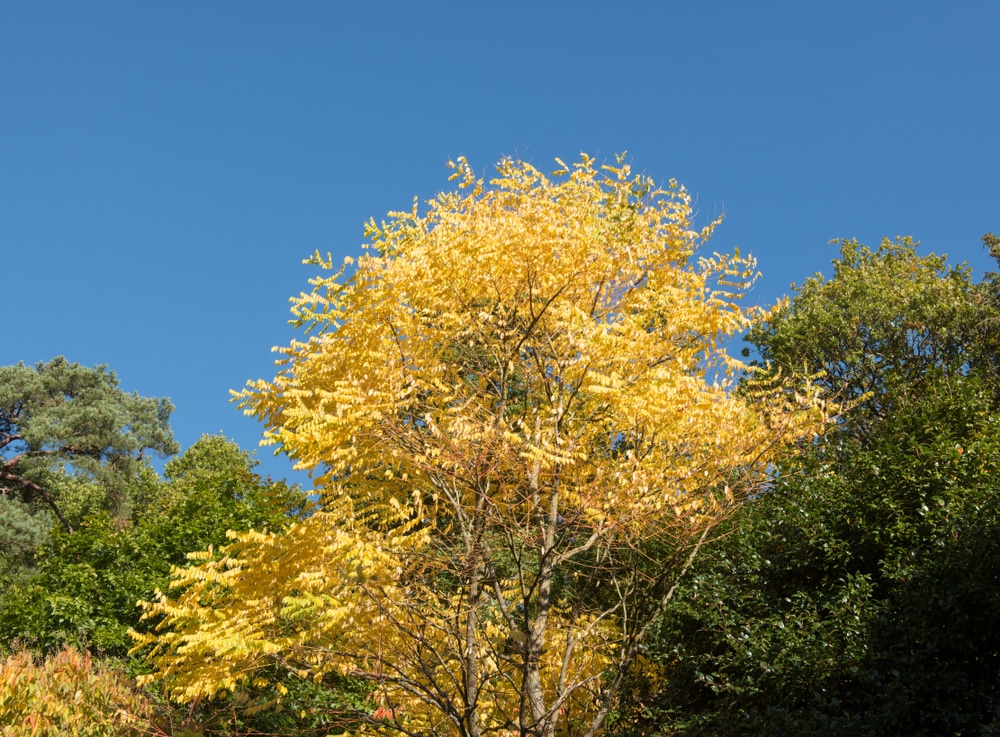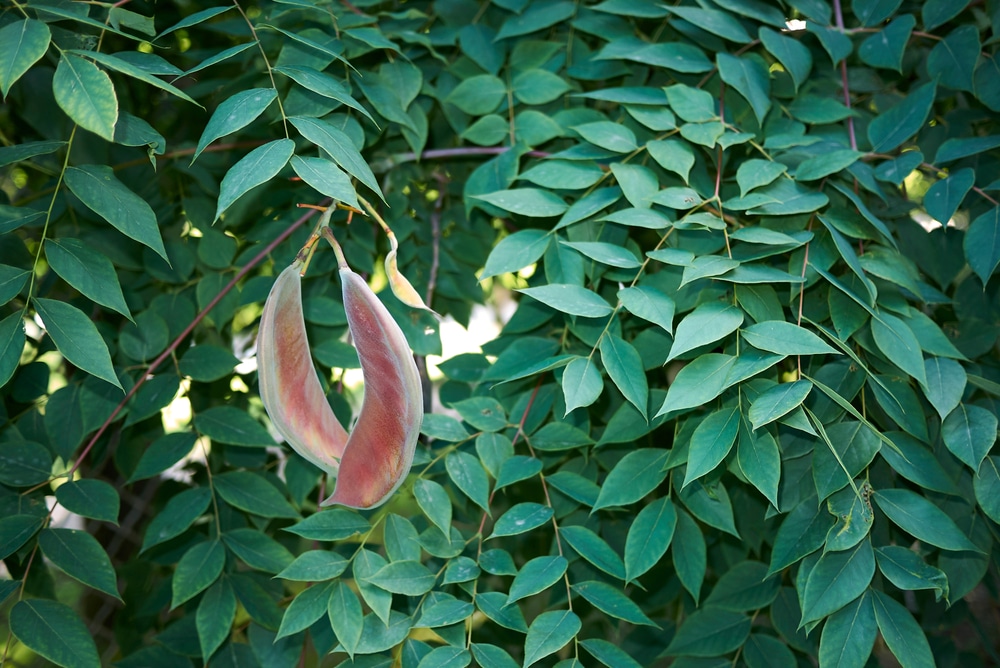If you’re interested in planting a Kentucky Coffee Tree but aren’t sure if it’s the right fit for you and your garden, here’s a concise list outlining all the pros and cons of planting one to help you with your decision.
Kentucky Coffee Tree Pros

- Hardy species that is tolerant of pollution and drought
- Requires little routine maintenance
- Excellent shade tree
- Resilient to pests and diseases
Kentucky Coffee Tree Cons

- Moderate to slow growth can make tree establishment difficult
- Difficult to find nurseries that stock the species because its taproot system is difficult to transport
- Drops large fruit pods
Kentucky Coffee Tree Biology
Kentucky Coffee Tree (Gymnocladus dioicus) is a large deciduous tree native to the midwest and south, with a few endemic populations scattered throughout New York.
Gymnocladus dioicus is a moderately fast-growing species with a short life span compared to other deciduous trees used in municipal landscape design. Gymnocladus dioicus features a seed pod fruit that can be roasted, ground, and used as a coffee substitute.
Gymnocladus dioicus is unique in appearance, with sparse, thick branching that supports alternate, bipinnately compound leaves that drop in late fall or early winter.
Soil Requirements
Gymnocladus dioicus prefers rich, moist, loamy soils in habitats near rivers, lakes, creeks, and other bodies of freshwater. However, Gymnocladus dioicus can also survive in nutrient-poor or compacted soils.
While poor soil conditions are not a limiting factor for Gymnocladus dioicus establishment, poor soil quality will affect the tree’s rate of growth. People planning on planting Gymnocladus as a shade tree should ensure their potential planting site has a favorable composition of sand, silt, clay, and organic matter, as well as a decent structure.
Water Requirements
Gymnocladus dioicus is a drought-tolerant tree when fully established. In habitats with poor water availability, establishing Gymnocladus dioicus will need to be watered weekly with around 50 gallons depending on environmental conditions.
After about two years, or after signs of vigorous growth, young trees can be weaned off supplemental watering and will tolerate arid conditions.
Maintenance Requirements
Gymnocladus dioicus has few maintenance needs. Once a specimen has established its resilience precludes the need for watering, soil amendments, or structural pruning. Light pruning is recommended for this species during dormancy in the winter to reduce the likelihood of branches becoming overweight with snow.
Depending on your aesthetic preference, this species may or may not need its seed pods cleaned up seasonally.
Who Should Plant a Kentucky Coffee Tree?
Gymnocladus dioicus is a popular choice of tree for municipal landscape designers. The tree’s robust tolerances make it ideal for cities with high levels of pollution and areas with a historically low amount of natural landscape. Still, despite its robust nature, Gymnocladus dioicus does not perform well in every landscape application.
Although Gymnocladus dioicus can survive in a wide range of environments, its large size makes it unsuitable for homeowners with small yards. Homeowners in the United States with large natural landscapes may consider planting Gymnocladus dioicus but should also consider the maintenance needs of such a large tree.
Homeowners with the appropriate environment and space for a Gymnocladus dioicus may also want to consider the aesthetics of the tree, as its appearance varies drastically from other deciduous trees.
Additional Considerations
Gymnocladus Dioicus is a rare tree. The rarity of the tree makes it an eclectic choice and, therefore, an unpopular ornamental with ordinary homeowners.
Pair Gymnocladus dioicus’s lack of notoriety with its large, atypical root structure, and you have a tree that few nurseries stock. Compounding the difficulty of finding a Gymnocladus dioicus sapling is the species’ moderate to slow growth rate.
Gymnocladus dioicus receives its colloquial name from its fruit, whose seeds resemble beans. Historically, these seeds were roasted, crushed, and used as a substitute for coffee. While the lore of the Kentucky coffee tree is an interesting factoid of Americana, the seeds of the tree are toxic to humans and animals in their natural state.
Although the seeds of Gymnocladus dioicus pose little threat, their toxicity is worth noting for potential planters with small children or animals.